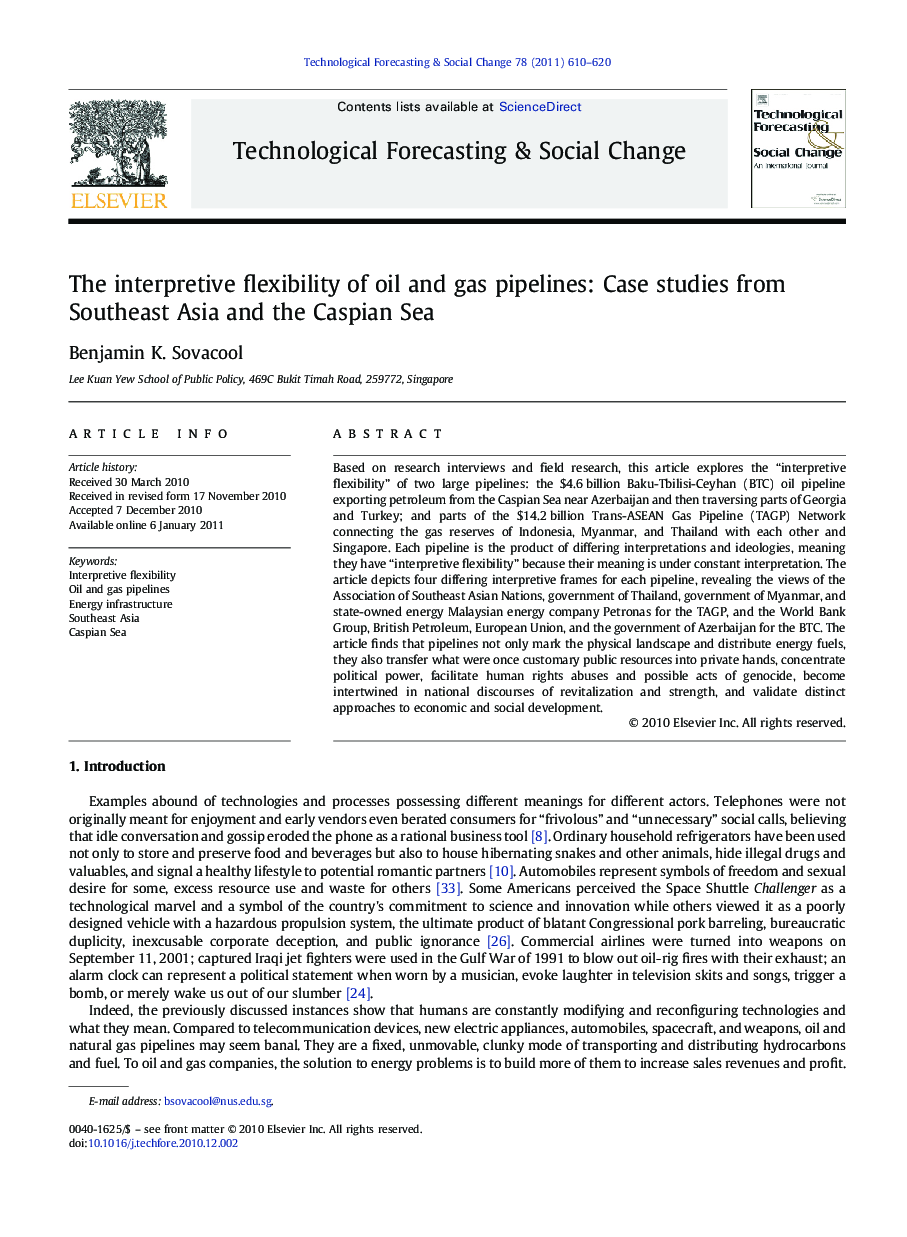| کد مقاله | کد نشریه | سال انتشار | مقاله انگلیسی | نسخه تمام متن |
|---|---|---|---|---|
| 897106 | 914880 | 2011 | 11 صفحه PDF | دانلود رایگان |

Based on research interviews and field research, this article explores the “interpretive flexibility” of two large pipelines: the $4.6 billion Baku-Tbilisi-Ceyhan (BTC) oil pipeline exporting petroleum from the Caspian Sea near Azerbaijan and then traversing parts of Georgia and Turkey; and parts of the $14.2 billion Trans-ASEAN Gas Pipeline (TAGP) Network connecting the gas reserves of Indonesia, Myanmar, and Thailand with each other and Singapore. Each pipeline is the product of differing interpretations and ideologies, meaning they have “interpretive flexibility” because their meaning is under constant interpretation. The article depicts four differing interpretive frames for each pipeline, revealing the views of the Association of Southeast Asian Nations, government of Thailand, government of Myanmar, and state-owned energy Malaysian energy company Petronas for the TAGP, and the World Bank Group, British Petroleum, European Union, and the government of Azerbaijan for the BTC. The article finds that pipelines not only mark the physical landscape and distribute energy fuels, they also transfer what were once customary public resources into private hands, concentrate political power, facilitate human rights abuses and possible acts of genocide, become intertwined in national discourses of revitalization and strength, and validate distinct approaches to economic and social development.
Research Highlights
► Oil and gas pipelines have "interpretive flexibility.
► Oil and gas pipelines can transfer wealth and concentrate political power.
► Oil and gas pipelines can facilitate human rights abuses.
Journal: Technological Forecasting and Social Change - Volume 78, Issue 4, May 2011, Pages 610–620